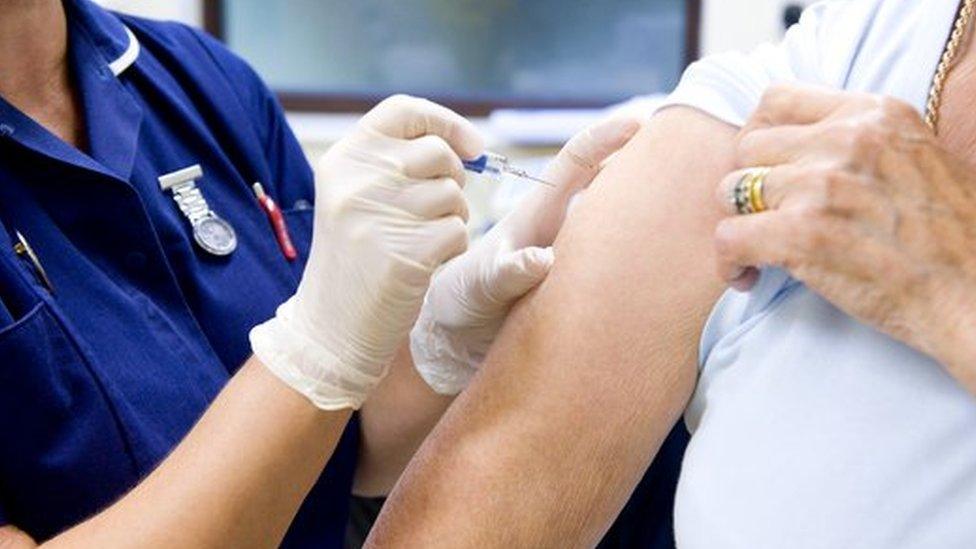'Flu is still dangerous' say couple who lost baby son
- Published
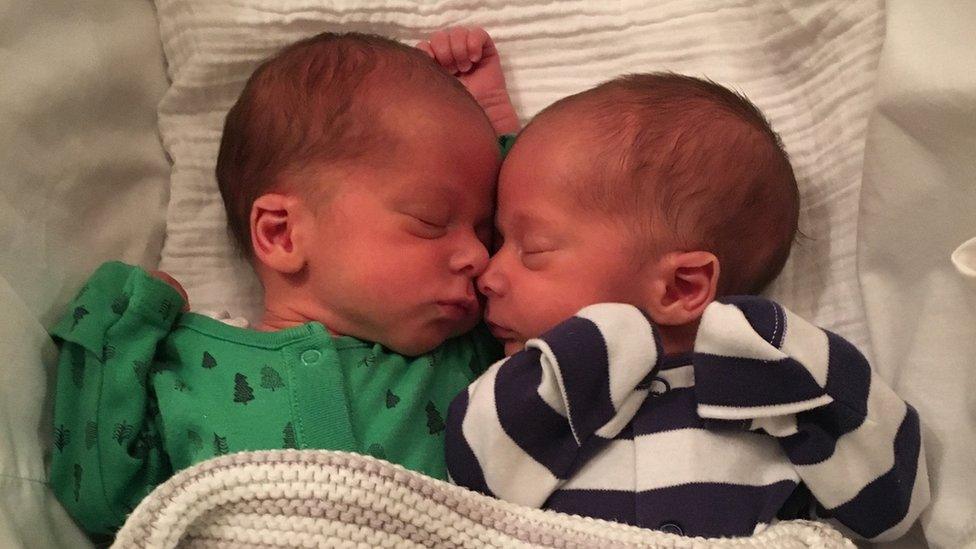
Gus (left) and Ned (right) were born in December 2018 but Ned died from complications related to the flu in January
A couple whose baby son died of flu said they wanted to "raise people's awareness that the flu is still dangerous" by telling his story.
Nikki Shaw, 32, and Dan Rowe, 36, from Market Harborough, had identical twin boys, Ned and Gus in December 2018.
In January Ned was rushed to Kettering General Hospital, later diagnosed with flu and passed away at Addenbrooke's Hospital in Cambridge.
Ms Shaw: "If you can have the flu vaccination why wouldn't you have it?"
She said that when the twin boys were born "everything was just perfect, it was wonderful".
"We brought them home and had our first Christmas at home with the boys."
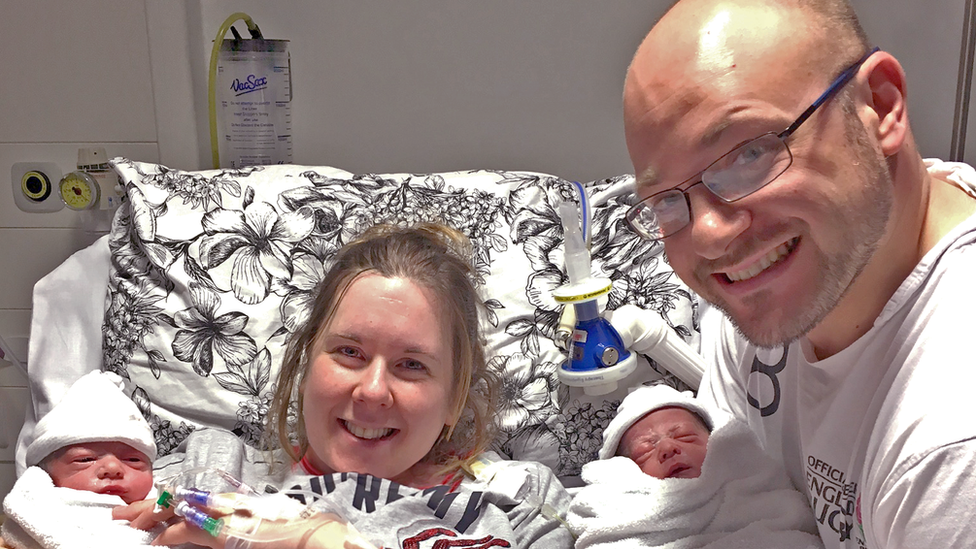
Nikki Shaw said it was a "trouble free" pregnancy the twins were born naturally seven minutes apart
On the morning of 24 January, Ned woke to feed "as he did every single morning".
Ms Shaw said: "As I finished feeding him and he fell asleep, I put my hand on Ned's chest and there was nothing there.
"He was floppy, cold."
Mr Rowe dialled 999 and began CPR on Ned, and soon after an ambulance took him to Kettering General Hospital.
Ned was then taken to Addenbrooke's where he was diagnosed with influenza.
Ms Shaw said when she was told it flu it was "utter disbelief".
"It's 2019, flu doesn't still kill people."
Ned was on life support for 12 days at Addenbrooke's but a rare complication meant he was unable to breathe for himself.
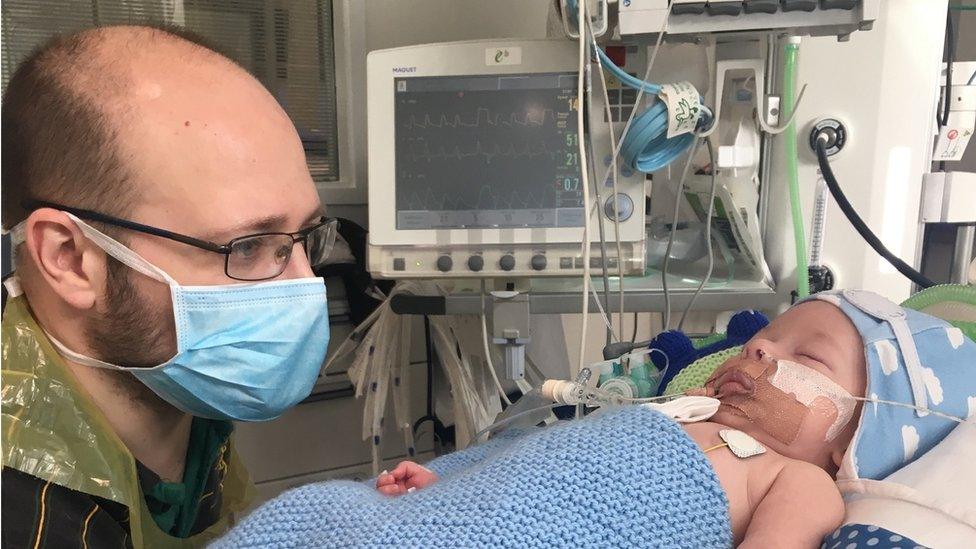
After Ned was in Kettering General Hospital he was taken to Addenbrooke's where they diagnosed him with flu
The couple said they wanted something positive to come from his death and returned to Kettering General Hospital to campaign for more people to be aware of the dangers of flu and to be vaccinated.
Mr Rowe said: "I think it's very easy to be blasé about the flu and the more that can be done to raise people's awareness that actually the flu is still dangerous, the better."
"By getting vaccinated you are not just protecting your own children and your own family but protecting people around you," he added.

What is flu?
Flu (influenza) is a common infectious viral illness spread by coughs and sneezes
It can be caught all year round, but is especially common in winter, which is why it is also known as seasonal flu
Symptoms include a high temperature of 38C (100.4F) or above; tiredness and weakness; a headache; aches and pains; a dry, chesty cough
People can usually manage symptoms themselves and there is no need to see a GP. Most people usually feel better within a week
However, people in some groups should consider seeing a GP if they are at risk of becoming more seriously ill. This includes anyone who is aged 65 or over, pregnant; has a lung, heart, kidney, liver or neurological disease; has a weakened immune system; or is diabetic
Source: NHS
- Published29 August 2019
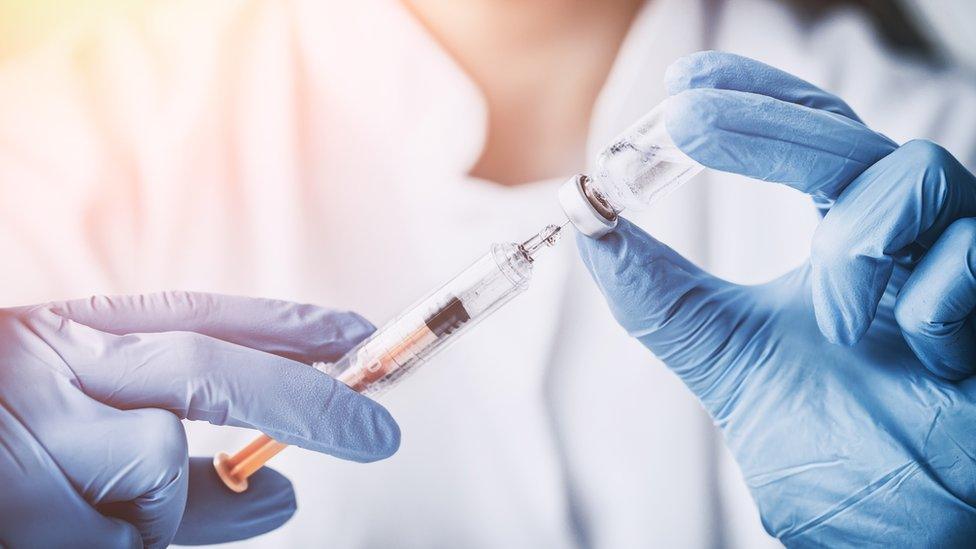
- Published4 December 2018

- Published12 September 2018
